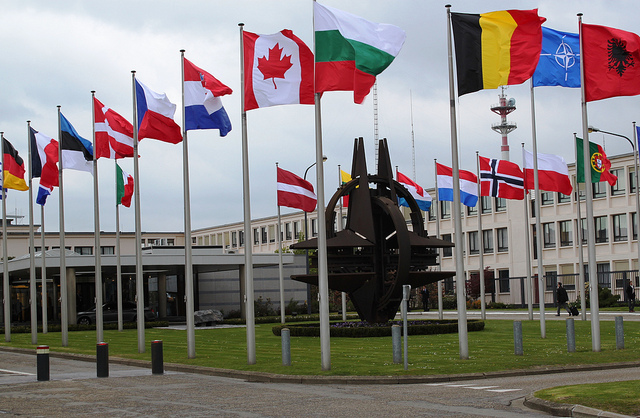
The World is a Safer Place with Women like Gottemoeller at NATO
On June 27th, NATO Secretary General Jens Stolenberg appointed United States Under Secretary of State for Arms Control and International Security Rose Gottemoeller as the next Deputy Secretary General of NATO. When her term begins in October 2016, US Gottemoeller will be the highest ranking woman in the history of NATO.
Gottemoeller’s career in arms control and international security, including serving as chief negotiator of the New Strategic Arms Reduction Treaty (New START) and Assistant Secretary of State for the Bureau of Arms Control, Verification and Compliance, is objectively outstanding. Her expertise, particularly in working with the Russian Federation, is unrivaled and will serve NATO well.
US Gottemoeller’s experience will make NATO more effective and impactful, and strengthen its ability to bring about a peaceful and stable world. Her perspective as a woman provides NATO with insights previously absent at the leadership level.
At first pass, many may assume this is a frivolous detail, or that by highlighting US Goettemoeller’s “woman-ness” we are overlooking her achievements and expertise. This would be incorrect.
When discussing the role of women in foreign policy and security, the conversation is largely limited to the connection between gender equity and stability. We focus on the importance of integrating women and girls into civil society, on maternal health, on the education of women and girls, and ensuring their safety particularly in the context of sexual violence. We discuss these things because we did not for too long, and they are too important to continue ignoring.
However, this is not the only conversation worth having.
We fail to address the astonishing landscape of women leaders in foreign policy and international security across the world and in the United States. It is so astonishing because it is so barren, despite the real threats this poses to our national security.
Yes, US Michele Flournoy, Secretary Rice, Ambassador Susan Rice, and General Lori Robinson, are extraordinary women leaders in foreign policy and security- but they are the exceptions, not the rule.
There has never been a woman Secretary of Defense or Chairperson of the Joint Chiefs. It took over 200 years for a President to nominate a woman to the role of Secretary of State. Of the 16 US intelligence agencies, only three leadership positions are occupied by women– Betty Sapp at NRO, Leslie Ireland the AS of Treasury for Analysis and Intelligence, and Lt Gen. Mary A. Legere- DCoS at Army Intelligence.
At a time when the world is at a true crossroads, when collaboration, integration, and cooperation is of the greatest necessity and we need our best minds at work, only a tiny percentage of those minds have successfully made their way to the table.
As Marie Wilson argued, you cannot be what you cannot see. Representation is important, and for the last 240 years we just have not had it.
Women are the (too slowly growing) minority. Early in their careers, women are often pushed aside and encouraged to pursue something “softer, like development” and mentors who can speak from personal experience are seemingly nowhere to be found.
The vast majority of our foreign policy, military strategy, and security decisions have been made by groups of bright and dedicated men. The continued failure to bring more women, particularly women of color, into the conversation and into decision making roles has resulted in less vigorous debate on policy, negotiations, and execution. We continue to rely on the perspectives of a small, select population to make decisions on behalf of us all, despite miles of research telling us not to.
Study after study highlights that for-profit organizations with greater gender equity and integration, particularly in the C-Suite and on the Board are more successful and resilient. Why would we want anything less for our national security?
The world is a safer place with Rose Gottemoeller as Deputy Secretary General of NATO because of her unimpeachable credentials – and because she will be, “in the room where it happens.”





